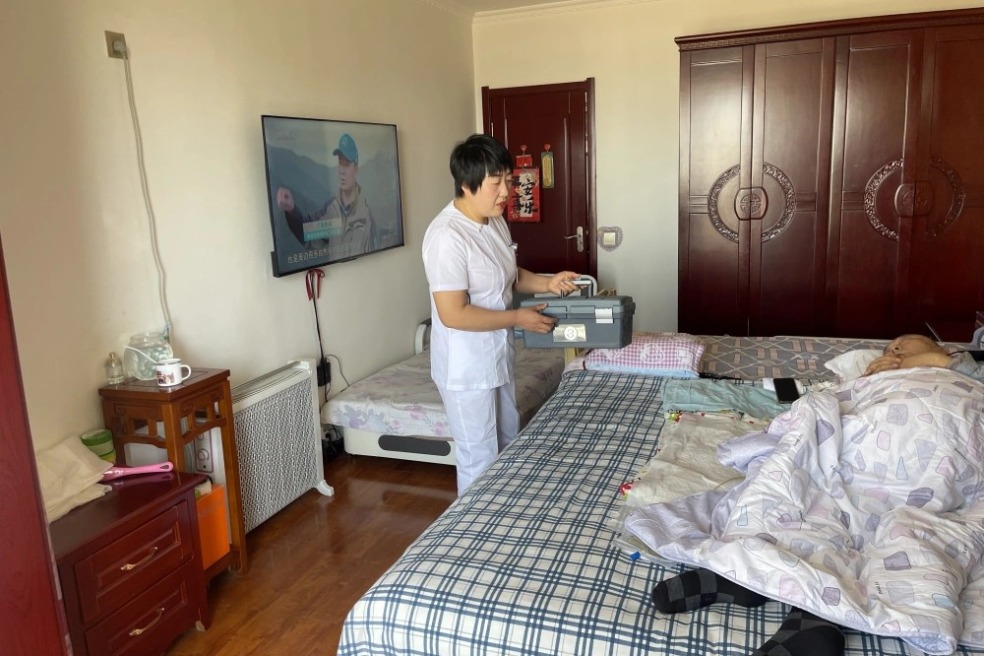23 measures to encourage innovation

Five areas, including protection of intellectual property rights, covered in State Council notice
A second wave of measures has been released to encourage Chinese innovation by promoting intellectual property rights protection, transforming technological achievements into products, and delegating more power to universities and research professionals.
The goals were disclosed last week in a notice issued by the General Office of the State Council, China's Cabinet, to promote a second round of innovation-related measures nationwide or in eight pilot zones, following the first such move promulgated in September 2017.
The 23-clause notice covers five areas: intellectual property rights protection; incentives to promote the transformation of technological achievements into real products; technological and financial innovation; military-civilian integration; and management innovation.

Eighteen of the 23 measures will apply to all provincial-level regions. They include the introduction of patent insurance to reduce losses when patents are infringed, and the participation of technical officials in trials related to violations of intellectual property rights.
In another measure, professional researchers will be able to hold shares in their research institutions when they are turned into enterprises, increasing efficiency and the possibility of transforming research outcomes into products.
Three other measures will be implemented in eight pilot zones: the Beijing-Tianjin-Hebei cluster; Shanghai; the Pearl River delta in Guangdong province; the Hefei-Wuhu-Bengbu cluster in Anhui province; the Chengdu-Deyang-Mianyang cluster in Sichuan province; Wuhan in Hubei province; Xi'an in Shaanxi province; and Shenyang in Liaoning province.
In the pilot zones, a certain proportion of the ownership of technological achievements will be awarded to research professionals as incentives before they actually participate in the projects, giving them greater motivation to transform such achievements into real products. Technological innovation boards will be set in regional equity markets, and local universities will be given autonomy in talent recruitment and academic title assessments.
The areas where two other measures, related to military-civilian integration, will be implemented were not specified.
The innovation-driven development strategy was introduced at the end of 2012, during the 18th National Congress of the Communist Party of China. In September 2017, the State Council released the first series of 13 measures to boost innovation, focusing on technological and financial innovation, recruitment of foreign talent, military-civilian integration, and startups and entrepreneurship.
Experts said the new notice is expected to accelerate the country's innovation-driven development, streamline administration and transform governmental functions. It is also designed to help build a globally leading business environment with fair competition, and stimulate market vitality and domestic consumption for sustainable and healthy social and economic development.
Wu Qi, a senior researcher at the Pangoal Institution, a public policy think tank based in Beijing, said the measures focus on strengthening incentives and better protecting the legitimate rights of innovators.
The notice attaches great importance to building a law-based environment for innovation and improving the regulatory system for innovation, Wu said, with more power to be delegated to local authorities and universities. Market-oriented risk control and sustainability are also targeted in specific clauses, he added.
Song Ruili, a senior analyst in the National Information Center's economic forecasting department, said the measures are expected to provide new momentum for economic growth, and promote supply-side structural reform and high-quality development.
For example, one measure called for different error-tolerance rates to be set for local equity funds' seed capital for business startups to encourage venture capital to invest in embryonic enterprises.
Song said the differentiated rates will be beneficial in breaking down barriers faced by local equity funds and expanding the supply of seed capital and venture investment. They can also improve the efficiency of capital and investment, making financing chains in the industrial life cycle work better, he added.
- Experts sharpen focus on new frontiers of AI
- Swiss watchmakers celebrate birthday with Shanghai exhibition
- Documents dating to Japan's bacteriological war in China released in Guangzhou
- Former Namibian President: China's contributions will always be bigger than many other countries
- Government program launched to assist China's young job seekers
- Student dorm AC installations fast-tracked in Shandong




































